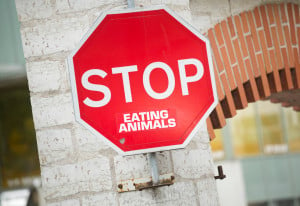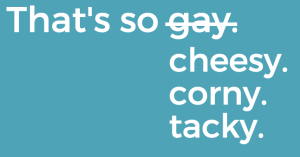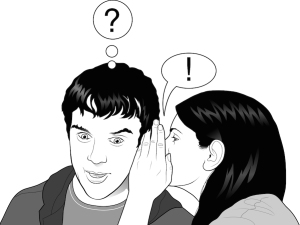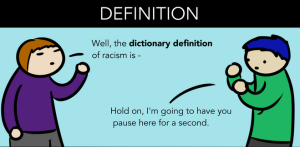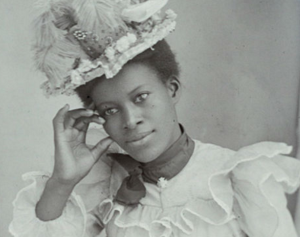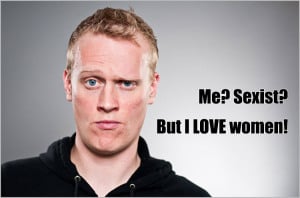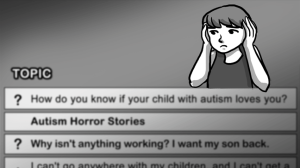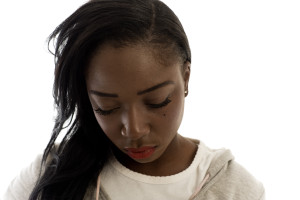
Source: Gallery Hip
Dear Internet,
We need to talk about body shame.
We need to talk about why it’s happening and why it isn’t working and what we need to do to stop it.
Because the world is becoming a dangerous place to have a body, and the privileged drive to shame others for having a body is getting out of hand.
So let’s start by defining our terms, shall we?
Shame, as a noun, is “a feeling of guilt, regret, or sadness that you have because you know you have done something wrong.”
It is an internalized emotion, which is generated in response to knowing you have done something that puts you at odds with the standards of your community (which can be on the micro level, like your family, or on the macro level, like your town).
Shame is something you feel. For being wrong.
Wrong, as an adjective and in the context of shame, is being “unjust, dishonest, or immoral.”
The thing is, you can’t be “wrong” if you’re just living alone in a dark cave with no other human contact. “Wrong” can only be understood in the context of group morality and standards.
That’s why shame is also a verb.
As a verb, shame is a punishment. It’s a way to cause someone to feel bad about being (or doing) wrong.
More important to this conversation, it can also be used as a police tool. Shame also means “to force (someone) to act in a specified way by causing feelings of shame or guilt.”
The pressure to conform, to be liked and accepted, is a strong force in the history of humanity. In the past, being exiled from your community often resulted in the unpleasant side effect of isolation and death, so shame was seen as a great deterrent to abnormal and deviant (“wrong”) behavior.
Lie, cheat, steal, or adulter? You could spend time in prison – or you could hang out with your head in the stocks for everyone to mock you to your face.
Being ostracized hurts. Being told you’re wrong is painful. And knowing you’re wrong hurts the most.
Once upon a time, shame was a punishment tool that could be owned and manipulated in a world that was small enough where the definitions of “right” and “wrong” were easy for the ruling class to define and control.
But while shame may have once been a useful (if not questionable) tool for governments and other macro-communities to keep people in line, the way we use shame now – as an interpersonal, opinion-based, Twitter-rage-filled punishment tool for policing bodies – no longer operates on the same principles or has the same effect.
Unlike in a small town where cheating and stealing were actually bad for community and shame extended the police force beyond handcuffs, in our borderless world, shame becomes a tool for policing bodies, reinforcing opinions, and allowing people to set up camps and remain locked safely inside of privileged belief systems instead of challenging their thinking.
But the fact of the matter is: Shame actually isn’t a useful or productive tool when it comes to policing bodies. Here’s why.
The Body Is Not Wrong
Body shame has deep ties into our Judeo-Christian influenced society, even for those who don’t actively practice religion.
If we are to believe everything the news media tells us (and I strongly encourage you to double check your belief system if you do), then fat people exemplify two of the seven deadly sins: gluttony and sloth.
Even though this is not at all the case, we are conditioned from an early age to see fat as a physical representation of these capital sins, and we are encouraged to avoid embodying those sins at all costs.
While “fathletes” (among many, many others! – you don’t have to play a sport to be healthy) actually actively disprove this paradigm every day, this doesn’t stop the majority of our culture from unconsciously making the following association:
If fat is an example of gluttony and sloth, and gluttony and sloth are sins, then, transitively, fat is a sin. And if fat is a sin, then it is something “unjust, dishonest, or immoral.” In other words, wrong.
And when you’re wrong, you deserve to be shamed, right?
The thing is, this “sin” of the body a) doesn’t actually injure other people and b) isn’t actually indicative of a sin at all.
But this doesn’t stop the body shamers.
Because while we may practice different religions or follow none at all, in our first world, media-soaked culture, we all belong to the Church of the Healthy (or Trying to Be). And in this Church, “health” is the way to “heaven.”
And who, with the knowledge of Salvation, doesn’t want to help spread the Good Word?
This is why body shame is so prevalent.
Disciples of the Church of the Healthy (or Trying to Be) are quick to jump on the fat shame train, framing it as “social responsibility” (read: concern trolling).
It’s not always meant to be malicious (even if it always comes off that way); it’s just “socially responsible” people trying to do their “civic duty,” since there’s no separation of church and state when it comes to the size of our bodies.
However.
The body is not wrong.
The body is not immoral, dishonest, or unjust. The body is just the physical representation of ourselves in the world, and the body looks different for every individual.
The body can be fat and healthy or thin and unhealthy or the other way around or anything in between.
The body can be a lot of things – and if we were to legislate about how a body should look, it would be because we’re afraid of the associations we have with our own deeply rooted socio-religious beliefs, not because the body is actually harmful to others.
And before you go making concern-troll-y arguments:
Other people’s bodies are not a burden on the health care system; the health care system is a burden on the health care system. Other people’s bodies are not a burden on you; at the very most, they’re an inconvenience, but thin bodies can be just as inconvenient as fat ones. Other people’s bodies are not immoral; other people’s bodies carry both moral and immoral people around this world, and we should judge not by looks but by actions.
So why do we continue to focus on the body as the punishable offense when it isn’t actually creating the change that it is supposed to “inspire?”
Shame Is Unproductive as a Punishment Tool for the Body
Here’s another thing about shame that should make you think twice about using it to legislate against the body:
Shame only works if the person you’re shaming feels bad about being outside of the standards of your community.
As I stated at the beginning of this article, if we were all still living in small towns, sheltered from the outside world and frightened of being cast out into the darkness to fight for our lives, then shame might still have some power.
But we exist in a world where communities now butt up against one another by way of the Internet. While it seems like we’re all a part of the same community since we have the ability to communicate with one another, this is very heartily not the case.
What I mean by this is:
Let’s say you’re a personal trainer and self-proclaimed health-obsessed person (like I once was). You spend your days reading health blogs. You believe every word in your textbook about how people lose weight and what it looks like when you’re healthy. You are surrounded by a community of people who believe that “strong is the new skinny,” as long as strong also comes along with a certain amount of leanness. You believe
When you see someone who “looks unhealthy” (read: fat) out in the world, you feel sorry for them. You want to help them meet the standards of your (thin-privileged) community, because you believe that everyone wants to be a part of said community.
So you offer your help and encouragement (unsolicited, of course). And they let you know that they don’t want your help.
This s a shameful response (to you), because they are violating the standards that govern your community in addition to “committing” the sin of being gluttonous and lazy in your eyes.
So you publicly shame them (like this guy), because it’s how everyone in your community helps legislate about the body: Be like us or we’ll tell you how shameful your existence is until you change it.
The thing is, shame only works if people buy into your mindset.
This is why the backlash to the Maria Kang “No Excuses” controversy was so heated: If I don’t count myself a part of your community, if I don’t consider my actions shameful, then your shame (verb) has absolutely no teeth.
It’s annoying, yes. And hurtful. (Very hurtful.) But it’s not a good punishment tool that leads to a change – especially if that change is myopic and actually harmful.
People like Maria Kang who want to know what your excuse is for not looking like her honestly believe that everyone wants to be inside that community and to access the privilege that comes along with being thin.
But there is a growing number of people who are embracing their unique, beautiful, and diverse bodies – of all sizes (including those thinner or differently shaped than Ms. Kang) who don’t want or need to be a part of that community.
So instead of being a useful tool for enforcing a paradigm, shame is mostly just hurtful and unproductive.
And it encourages those who don’t buy into that shame to speak out even louder against the people who would try to oppress them – which only makes the body shamers more angry and vehement about their beliefs.
It’s a vicious circle, which could be avoided completely if we started from the premise that no body (size/type/shape) is wrong – not Ms. Kang’s and not the women she wished to shame.
Shame is unproductive because you cannot force a person to change themselves if they don’t believe that there’s anything wrong (immoral/unjust) with the way they look now.
Especially because there’s actually nothing wrong (immoral/unjust) with the way they look now.
If we want to start undoing the hurts of a culture that’s focused on body shaming and body policing, we have to be willing to step outside of our religious devotion to the idea that any kind of body can be wrong.
We have to stop using language that reinforces a black-and-white paradigm in which there is a “right” way to have a body.
We have to acknowledge that shame is not a useful way to help anyone “be healthier,” especially if they are already healthy and happy with who they are.
When Is Shame Useful?
The answer to this question should be: never.
Shame isn’t productive. On either side.
When we invoke shame about the body – no matter what size – it always misses the mark.
However, while the body is not shameful, do you want to know what is? The way people talk to others about their bodies.
If we really want to get into an argument about the morality of bodies, if we’re really going to drag sin into this conversation, then let’s talk about pride. Let’s talk about how this sin is different.
Because the sin of pride, unlike sloth and gluttony (which, again, aren’t completely germane in the conversation about fat bodies), isn’t something that can be ascribed to the body.
Instead, pride is an internal emotion that often makes itself felt externally when the “sinner” decides to shame or hurt others in order to feel better about themselves (and can we agree that this is pretty much what concern trolling and body shaming really is?).
Which body is causing more harm? The body that attempts to punish others based on an opinion or insecurity or the body that’s just living its life?
It’s too bad that there isn’t a punishment for actively hurting other people based on a prideful opinion, because hurting other people is unjust and immortal.
The problem is, just offering shame back to those who have made harmful statements doesn’t change their opinions. Not always, anyway. There are of course exceptions like Lindy West who are able to get through to their would-be oppressors, but the vast majority of people end up shouting into a void.
More than anything – and certainly more than shame – we need education and conversation. We need a paradigm shift. We need to drop the notion that shame is our best or only tool for getting our points across.
Is it so much to ask? Maybe.
But I think that if we refuse to buy into the language of shame and make it clear to anyone who seeks to use it for policing others bodies that it is ineffective, we’ll at least be on the right path toward inclusiveness.
So, Internet, I conclude with a plea: Let’s drop the shame.
We’ve already proven over and over again that it doesn’t work. The dead horse has been beaten, and the body still doesn’t require an apology. So what can you do today to start changing the conversation?
[do_widget id=”text-101″]Kaila Prins is a Contributing Writer for Everyday Feminism and a health coach who works with women who are ready to stop “recovering” from disordered eating and start “discovering” their true identities. Kaila’s health coaching services, as well as her blog, can be found at In My Skinny Genes, and she hosts a weekly podcast called Finding Our Hunger. She also counts characters and not calories on Twitter @performingwoman.
Search our 3000+ articles!
Read our articles about:
Our online racial justice training
Used by hundreds of universities, non-profits, and businesses.
Click to learn more






